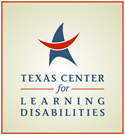Description
Interrelations of two measurement methods (cognitive versus behavioral ratings) for executive function (EF) were examined and related to reading comprehension and math calculations in fourth- and fifth-grade students (n = 93) in the context of a diverse urban student population. Relations among measures within four EF processes (working memory, planning, inhibition and shifting) were modest; relations to academics were stronger. EF measures contributed to both academic outcomes even in the context of relevant covariates (age, language, and educational program). Working memory was particularly important for reading comprehension across measurement type. Cognitive measures from all EF processes, particularly inhibition and planning, and behavioral ratings of working memory were important for math.
Citation
Gerst, E. H., Cirino, P. T., Fletcher, J. M., & Yoshida, H. (2017). Cognitive and behavioral rating measures of executive function as predictors of academic outcomes in children. Child Neuropsychology, 23(4), 381-407.
